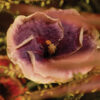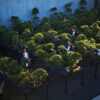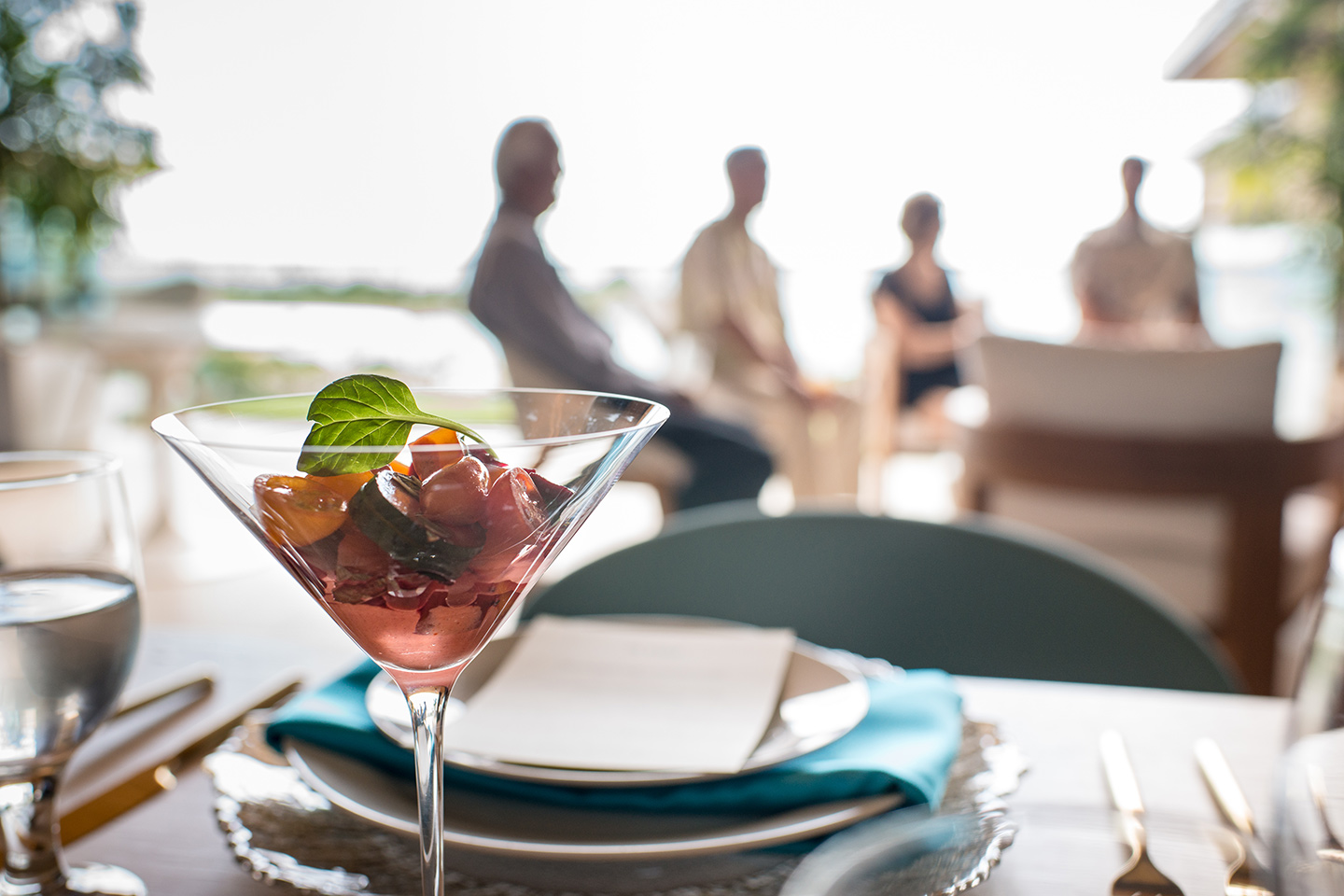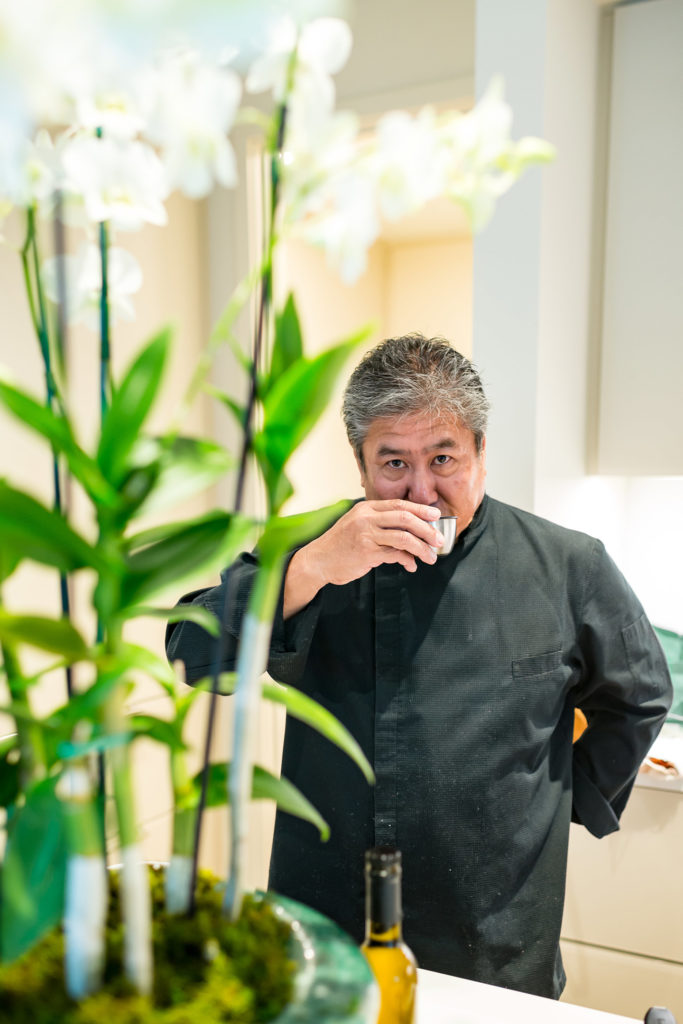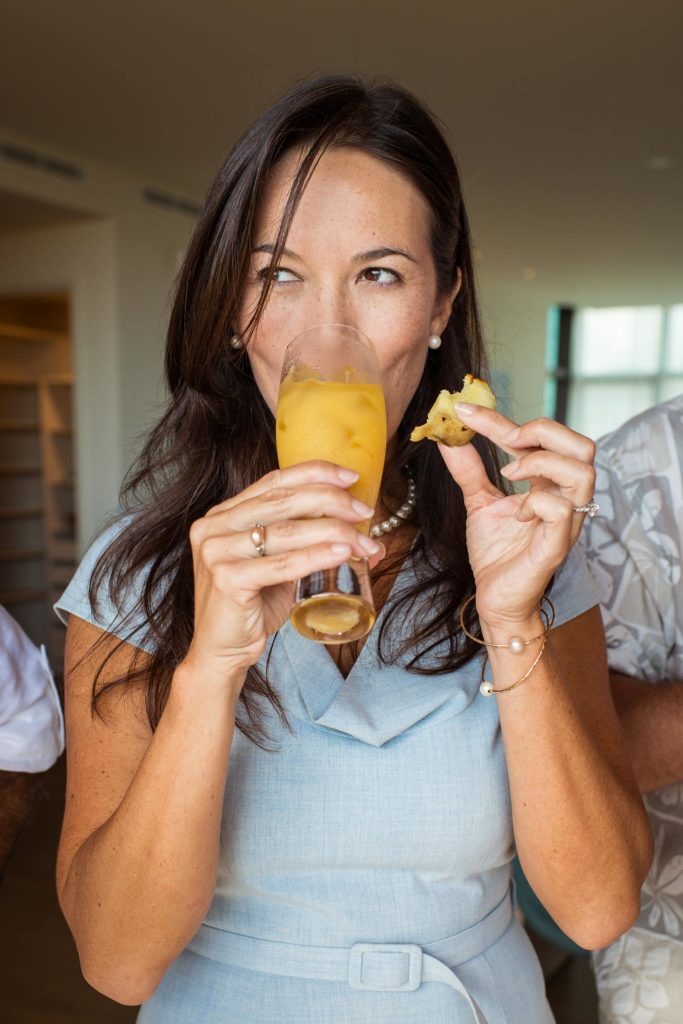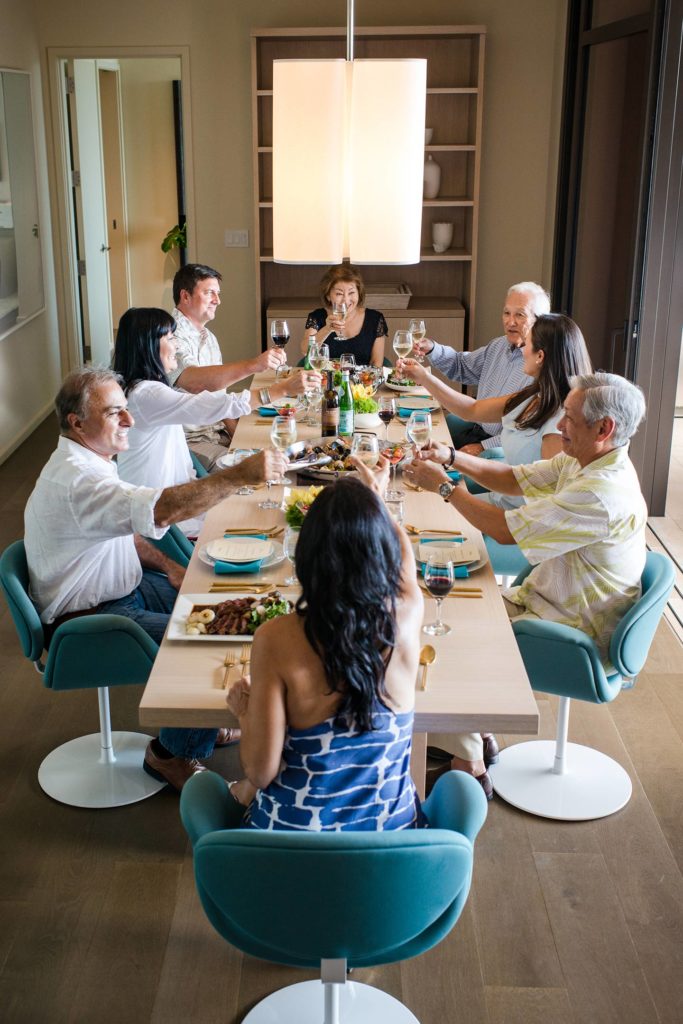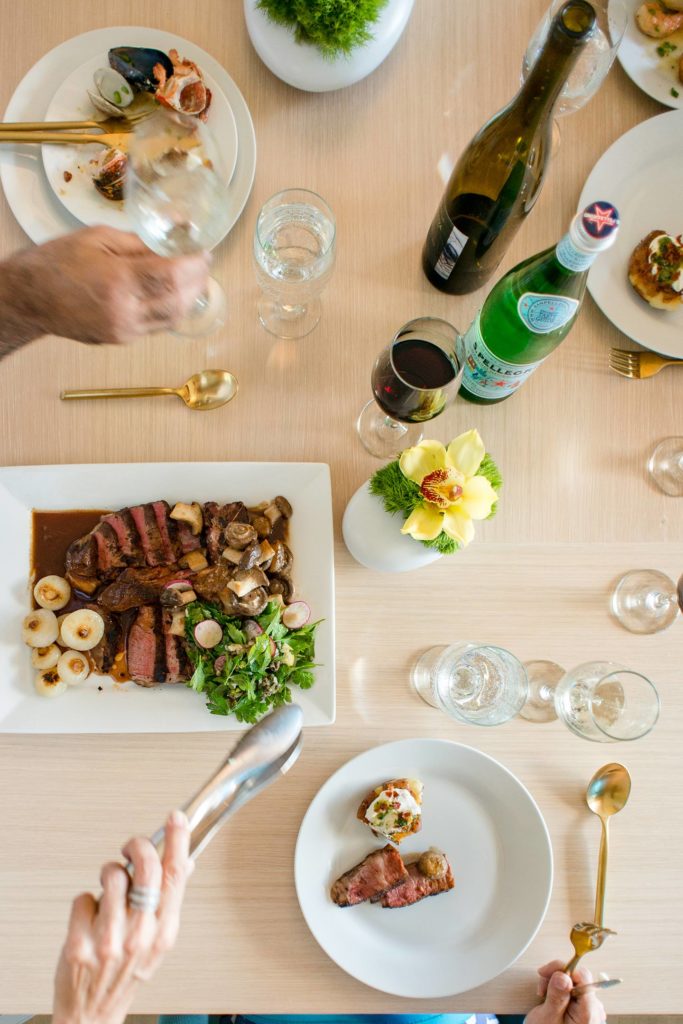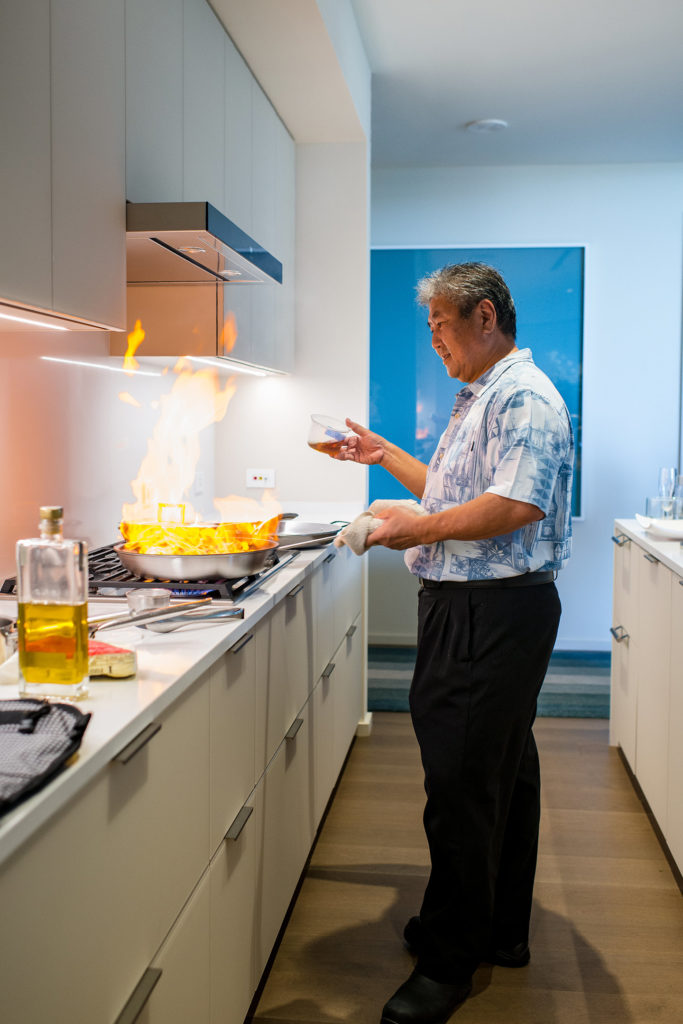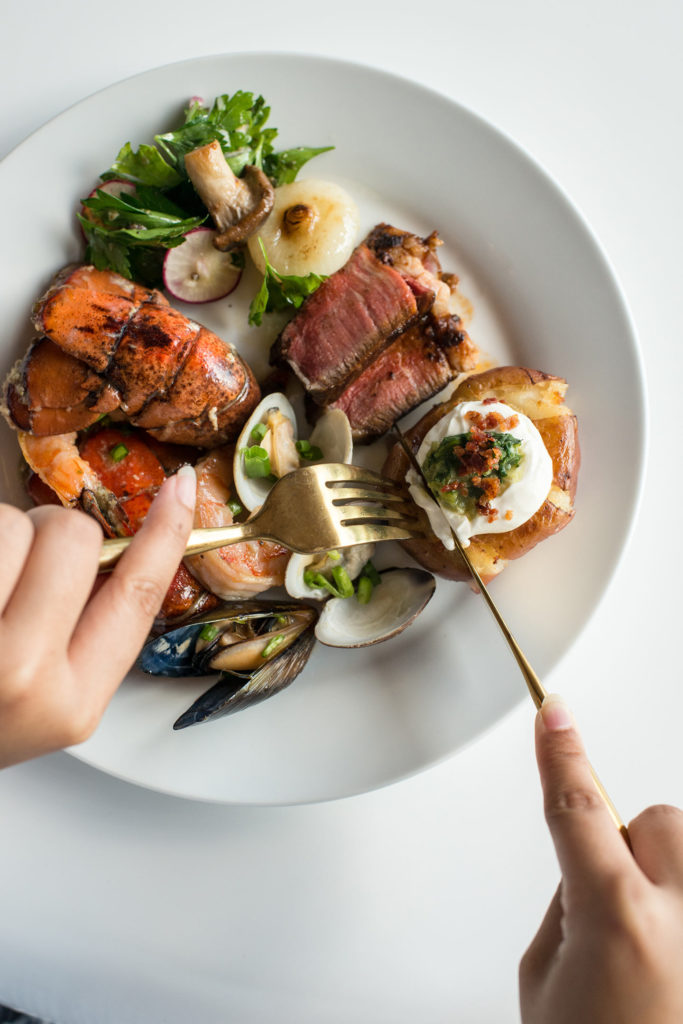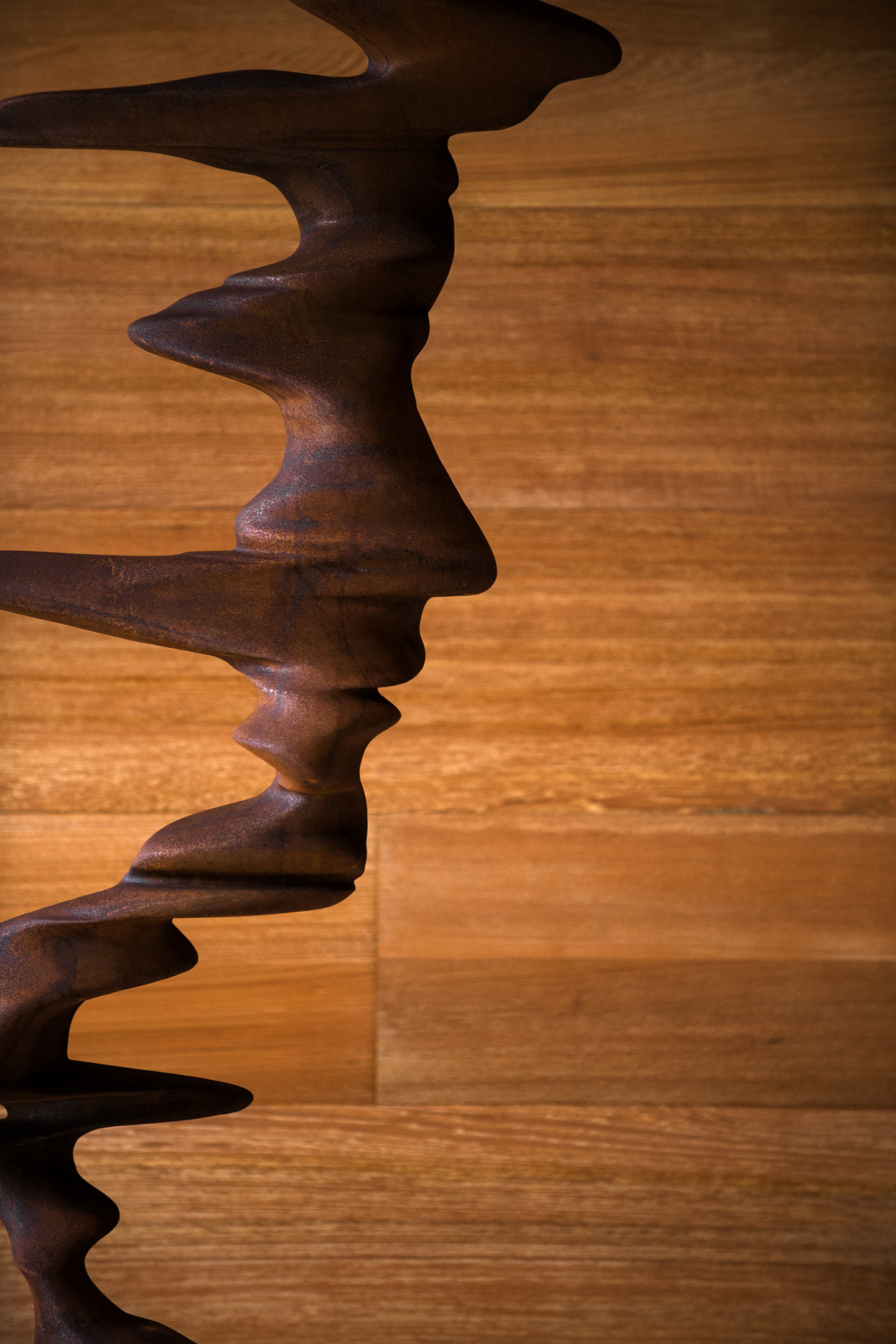Text by Lisa Yamada-Son
Images by Jenny Sathngam
If you were to invite chef Alan Wong to a party, he would probably bring chicken soup. “Or hamburger gravy,” he says with a chuckle. “My mom’s go-to was hamburger. If she had milk, she would put milk. If she never had milk, she put water and cornstarch, serve with rice, and that was breakfast. When I go to a potluck, I want to bring something decent, but I want to be low key.”
It might be surprising that Wong might offer up something so simple. After all, he is one of Hawai‘i’s most eminent chefs and a pioneer of Hawai‘i Regional Cuisine, the movement that began putting the island’s bounty on fine-dining plates. But for Wong, whose palate was shaped by his mother’s home-cooked meals, simplicity is what he knows best.
Shortly after he was born in Japan, Wong and his family moved to Hawai‘i, where, when he was 7 years old, his parents split. To support him and his sister, Wong’s mom found work cooking in Japanese restaurants, where, as he puts it, she received her training.
Between my mom’s Japanese cooking and my grandfather’s Chinese cooking, that’s where I developed the degree of salt and seasoning I put into my food. I think everybody’s the same. Whatever you were raised on, you cook at the same salt level.
Alan Wong
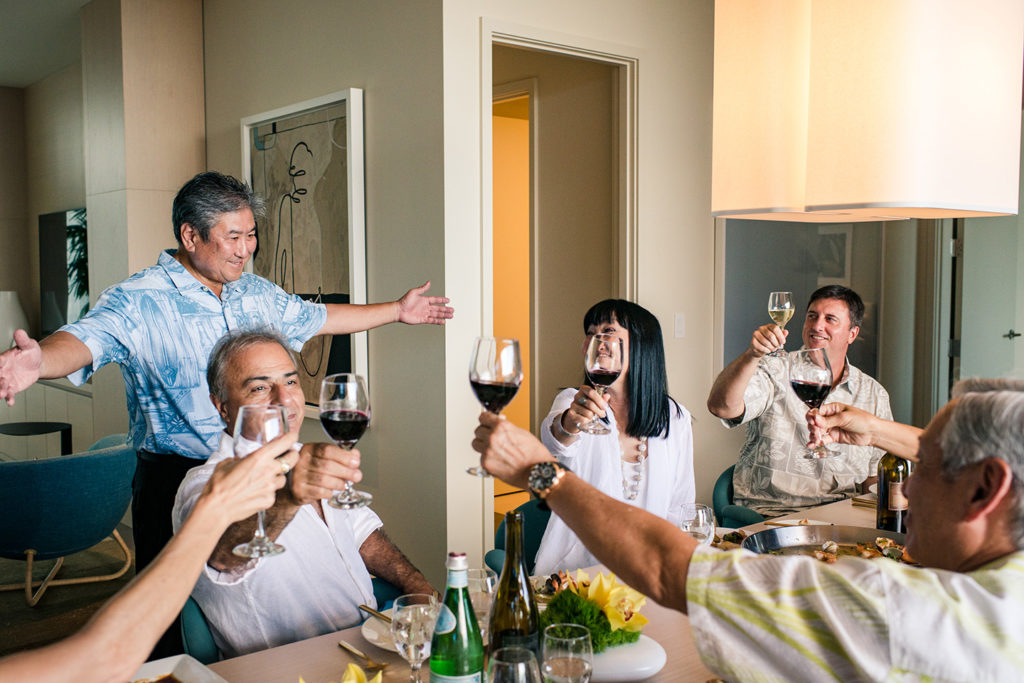
“Oh, my favorite foods growing up would be stuff like chawanmushi, miso soup, gyoza, kinpira gobo, okara—simple stuff, like delicatessen food,” Wong says. “Between my mom’s Japanese cooking and my grandfather’s Chinese cooking, that’s where I developed the degree of salt and seasoning I put into my food. I think everybody’s the same. Whatever you were raised on, you cook at the same salt level.”
While he has fond food memories, Wong got into the industry as more of a business proposition. At 15, the precocious youngster realized he could make $1.60 an hour working in the plantation fields, or $2 an hour washing dishes in a hotel. He chose the latter, and worked his way from dishwasher to busboy to host to waiter to, at only 19 years old, restaurant manager. As a way to become a better manager and learn more about what happens in the kitchen, he enrolled in the culinary program at Kapi‘olani Community College.
“In my first class, I was baking bread and making salad dressing from scratch,” Wong recalls. “This was a big awakening for me. I actually thought bread came out of a package and salad dressing came out of a bottle.” After graduating, Wong apprenticed at The Greenbrier Resort in West Virginia, and worked at Lutèce in New York City, where the seeds were planted for Wong to open his own restaurant back in Hawai‘i.
Today, the chef is still hungry for knowledge. In his office, beneath his namesake restaurant on King Street, he has binders filled with research for future recipe development. In one, labeled “healthy research,” Wong has an alphabetized catalogue of the healing properties of all sorts of ingredients.
There’s amaranth, which aids in digestion and reduces inflammation; Filipino kalamungay leaves, called moringa when ground into a powder, touted by researchers as the next superfood; and bitter melon, which Wong eats raw for breakfast with shoyu and oatmeal.
According to traditional Chinese medicine, Wong says, this type of meal is considered yin, and the body needs a balance of foods both yin and yang to maintain optimum health.
Tucked in among these more exotic ingredients are foods that are commonplace, though no less surprising. Wong displays a Ziploc bag full of discarded onion skin, which most people would toss in the trash.
“Onion skin has more antioxidants than the onion itself, so it’s good for [preventing] colon cancer, obesity, type-2 diabetes, gastrointestinal problems, cardiovascular disease, and it’s so simple,” he says.
In his restaurant, Wong eliminates the need for cream in a brown steak sauce by using a reduction of onion skin-steeped water as a base. “I’m constantly battling to improve my health,” he says. “I’m a professional eater. I have to do that. Otherwise I’d be goners.”
Utilizing ingredients like these can help the common cook elevate dishes. “Local people, especially all the aunties, they always try to find out what’s in the dish, to find the best recipe,” Wong says. “So when you do unusual things, you can make an event a little bit more interesting. Then again, there’s nothing wrong with plain-old, simple, local-style poke either.”
Wong offers this tip for hosting a great gathering:
“If you’re going to entertain, you want to maximize your fun as the host, because your guests come to see you.”
He recommends choosing a menu that you can prepare 50 to 75 percent of ahead of time. That way, when guests arrive, “Yeah you have to do your thing, but then you also have time to enjoy it.”

